We stand for the principles that guarantee a fair trial
Shane Drumgold has taken aim at our reporting and analysis of his conduct during the Higgins debacle. He no doubt imagined his allegations would go untested by me. He was wrong.
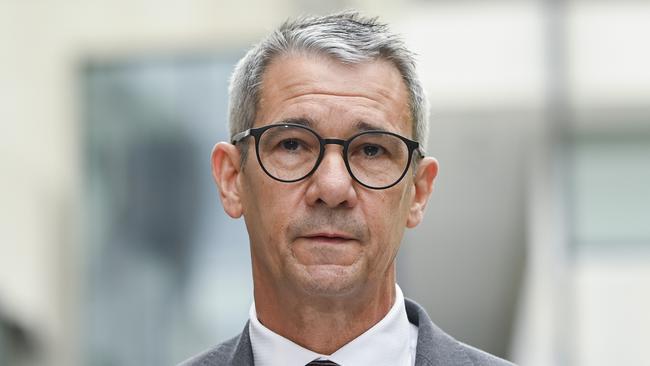
Not everyone on the receiving end of intellectual curiosity appreciates this bigger picture. So it was with Shane Drumgold this week when, through his lawyers, he took aim at our reporting and analysis of his conduct during the Higgins debacle. The former ACT chief prosecutor made a series of allegations designed to prove my role in reporting the Sofronoff inquiry was so malign, the whole inquiry should be invalidated.
In the ACT Supreme Court on Tuesday, Dan O’Gorman SC claimed our reporting of Drumgold was negative. The barrister used this word, negative, many times over many hours while trying to make their case. Drumgold claims that because I was in contact with Walter Sofronoff before and during the ACT board of inquiry, a reasonable bystander might regard articles I wrote alone or with my colleague Stephen Rice that cast Drumgold “in a negative way by impugning his character and credibility” as infecting Sofronoff’s ability to bring a fair and open mind to his final report.
Drumgold claims we were anti-Drumgold and pro-Bruce Lehrmann “advocates”. He wants to have findings in the inquiry report set aside. Justice Stephen Kaye will respond to those legal issues in due course.
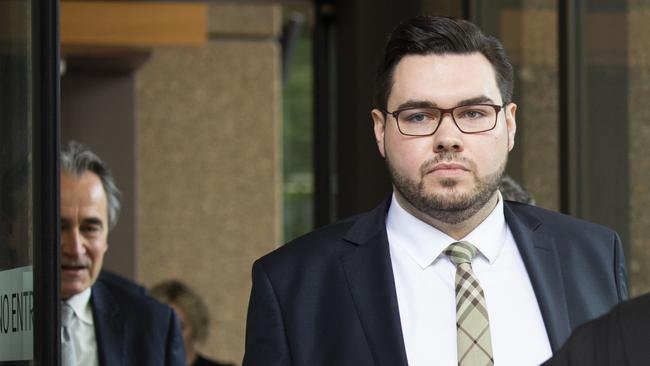
We were not represented or heard in court. Drumgold, no doubt, imagined his allegations would go untested by me. Here is my response.
Drumgold mimicked many misconceptions at the heart of this sorry tale. The central question is not whether our reporting was negative but whether it was accurate. If it was negative but accurate, Drumgold can’t fairly complain. If our reporting was inaccurate, we would have expected to hear Drumgold complain forcefully at the time about our errors. We would have expected to hear exactly what facts we got wrong, possibly even to have received the odd threat of defamation.
What did we hear? Crickets. Drumgold made one complaint to the Press Council, and he later abandoned that. Not once this week did Drumgold’s lawyers suggest when making their case that our reporting was inaccurate.
It’s worth noting, by contrast, that Drumgold made false statements about the Australian Federal Police and political interference by senator Linda Reynolds – claims he withdrew during the Sofronoff board of inquiry when the lack of supporting evidence gave him little choice but to retract.
This imbroglio began as one of those legally and emotionally fraught he said/she said disputes about an alleged sexual assault. Brittany Higgins said she was raped. Lehrmann denied having sex with her. When the story took bewildering and neck-breaking turns, media outlets reported each chapter through the filter of celebrating and supporting Higgins.
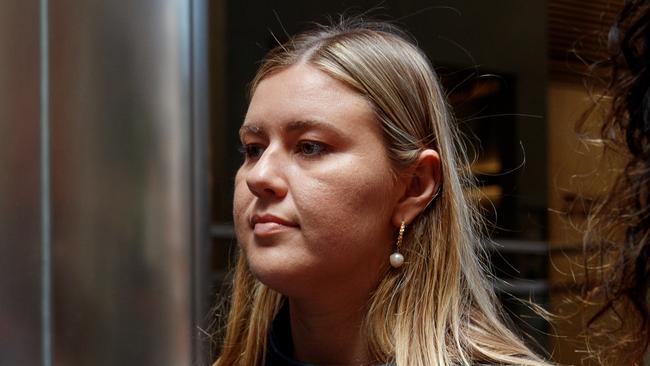
It must have come as a shock to many when The Australian started reporting concerns held by AFP police officers about the lack of evidence. That shock must have been compounded when this newspaper looked closely at the conduct of Drumgold before, during and after the criminal trial in 2022. The ridiculous default position was to assume we were anti-Higgins and pro-Lehrmann.
We carry no brief for Lehrmann. Or for Higgins. We were not anti-Drumgold. We were not for or against any other party in this godforsaken mess. All along we have been pro-rule of law. All along our commitment has been to principles that guarantee a fair trial, driven by the unwavering belief that a fair trial should never be a lottery. For all of our sakes.
We particularly raised concerns about the impact on the criminal justice system and all that entails – due process, the presumption of innocence, the importance of cross-examination, empanelling a fair-minded jury – when Higgins chose to front cameras for The Project before finalising a formal police complaint.
We reported on institutions, including some of those fundamental pillars to our democracy, and their adherence to the rule of law. We raised concerns about the impact on the presumption of innocence when Labor politicians began celebrating Higgins in order to weaponise this rape allegation for their own base political motives in the lead-up to an election.
As Justice Michael Lee said during the recent defamation case brought by Lehrmann against Network Ten and Lisa Wilkinson, you don’t celebrate someone you think is lying; ergo celebrating Higgins’s bravery morphed into a presumption of guilt for a defendant.
We raised concerns about prime minister Scott Morrison undermining the presumption of innocence by standing in parliament to apologise to Higgins when he had no clue what the evidence was.
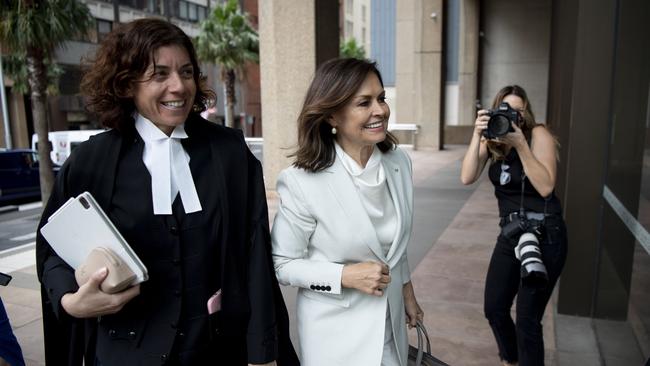
We reported on AFP officers who raised concerns that there was not sufficient evidence to charge Lehrmann.
During the criminal trial that was aborted, we reported the inconsistencies in great detail, understanding the critical role of cross-examination. It is, as lawyers told us, the truth engine of the law for good reason. No claim of wrongdoing is worth anything unless it is the subject of cross-examination.
When Drumgold announced there would be no second trial but applauded Higgins and said he thought he could have secured a conviction, we raised questions as to the appropriateness of that conduct by a prosecutor. What happened to the presumption of innocence, we asked. Not because we were siding with Lehrmann. He has lawyers to defend to him. Just as one should defend free speech for those one disagrees with, it’s critical to defend the rule of law for every person, regardless of whether you think they are innocent or guilty. Principles trump personal preferences.
After these twists, we exposed how Higgins and David Sharaz politically manipulated this rape allegation in the lead-up to the federal election, including the involvement of senior Labor MPs, particularly Katy Gallagher. Once again our concern was how a citizen might expect a fair trial in this wicked and febrile environment.
When Drumgold called for a public inquiry, we reported on the board of inquiry that followed. We did so thoroughly. Unlike many other media outlets I put many questions to Sofronoff before and during the inquiry to fully understand the issues, so we could fully explain serious issues about our criminal justice system to readers. If I ask more questions than other journalists, as Sofronoff’s lawyers told the court this week, I make no apologies for that.
The upshot of those communications, and watching the inquiry, was that we reported on the misconduct of Drumgold in detail.
Our reports were negative. How could they not be? Plainly, it was not our reporting role to put a gloss on the former DPP’s admissions of misbehaviour.
We reported that the chief prosecutor who wielded tremendous state power against ordinary citizens admitted to misleading the Chief Justice during the trial. We reported that Drumgold directed a junior solicitor to draft and swear an affidavit that the then chief prosecutor knew deliberately advanced “a false claim of legal professional privilege and misled the court”. We reported that Drumgold sought to keep from the defence lawyers police material that they should have had to properly defend their client.
In all this there was not a skerrick of evidence that Sofronoff was influenced by our reporting or even that he read it. While I am flattered by the suggestion that Sofronoff fell under my Svengali-like influence and reached his conclusions because I exercised some power over him, it is completely laughable. Why a former president of the Queensland Court of Appeal would be more influenced by a journalist’s reporting than the evidence – including Drumgold’s own admissions – is an assertion one can only admire for its chutzpah.
If there was a woman who might have exercised significant influence over Sofronoff, it was Erin Longbottom KC, counsel assisting the board. The formidable Longbottom and her hardworking and skilful legal team painstakingly gathered the evidence on which Sofronoff reached his conclusions. It is an insult to her and her team, not to mention Sofronoff, to suggest he ignored their work – and the many written submissions by barristers for various parties raising serious questions about Drumgold’s behaviour – in favour of deference to me.
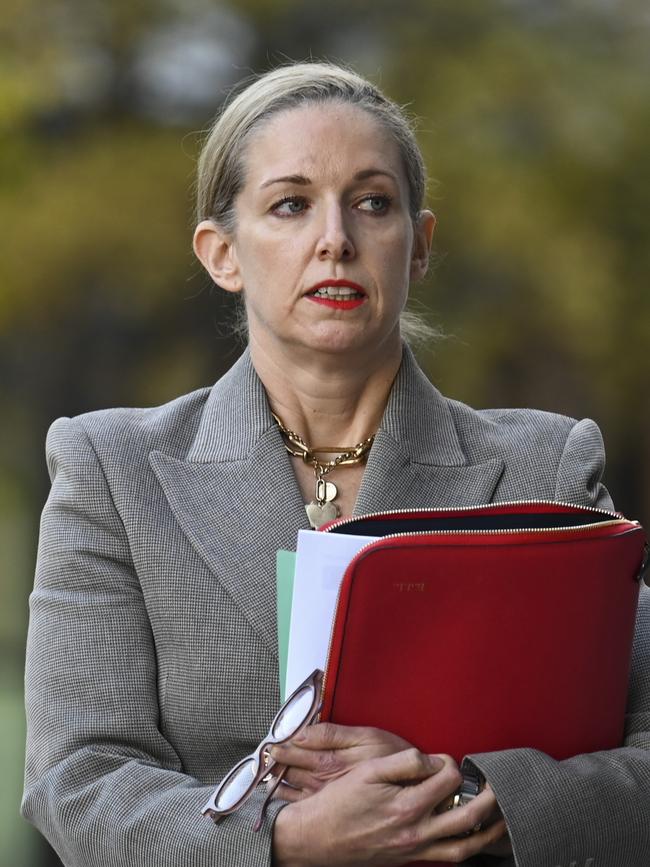
Perhaps the critics of our reporting are so blinded by activism and self-preservation that they can’t spot what fair journalism looks like. Early last year, at around the same time we were reporting on controversies surrounding Drumgold, we were also instigating proceedings to seek a publication order so we could reveal that Lehrmann was the subject of a second set of rape charges in a matter in a Toowoomba court.
We believe in transparency all around, shining a light into every corner and crevasse. This makes for confronting stories about the role of the media, the legal fraternity and political figures. On that score, we haven’t stopped digging into the darker recesses of a government that shelled out $2.4m to Higgins, no questions asked. We will report further on that if, as taxpayers deserve, it is investigated by the newly created corruption agency.
Listening to Drumgold’s lawyer attack our journalism this week was a reminder of an essential conundrum facing the former DPP. It was not our reporting that damned him. As the younger generation might say, his admissions are a “him problem”. His own admissions demonstrated that he fell short of how a prosecutor should behave in a criminal trial where a defendant was facing jail for a serious crime.
Once we started reporting all of these chapters in the Higgins-Lehrmann saga, other people agreed to tell us their stories. We reported Reynolds’s story. We reported Fiona Brown’s story. Both women had been shockingly maligned for many months, cast across media outlets as villains. In fact, they were the only two women who told Higgins the best thing to do was go to the police.
Then others contacted us, people with similar experiences, where they felt the brunt of the presumption of innocence being turned inside out and upside down. People whose reputations were trashed, their careers on the brink of ruin because of untested allegations.
Sexual assault is a serious crime. The criminal justice system must, consistently with the presumption of innocence, find ways to make it easier for complainants to come forward. The aim must always be for convictions and appropriate punishment for those found guilty. But a complainant is not a victim until a defendant pleads guilty or a court has found, beyond reasonable doubt, that a defendant is guilty. And this tawdry tale is a reminder there can be no short cuts to finding someone guilty without undermining the principles that protect each and every one of us.
If journalists were allowed to write only positive stories, that would be the end of journalism. And that would neuter one of the critical foundations to a free and vibrant democracy. Drumgold, and the many others who appear not to understand the role of the media, may wish to ponder these oft-quoted words about journalism: “Speaking the truth that somebody wants you not to publish is journalism. Everything else is marketing.”








The health of Australia’s democracy depends on the strength of three institutional pillars: a robust parliament, an independent and honest judiciary, and a free and intellectually curious media.